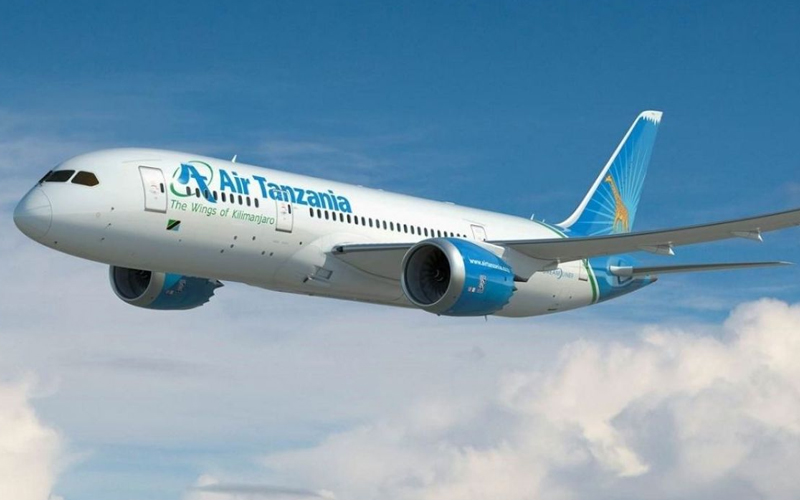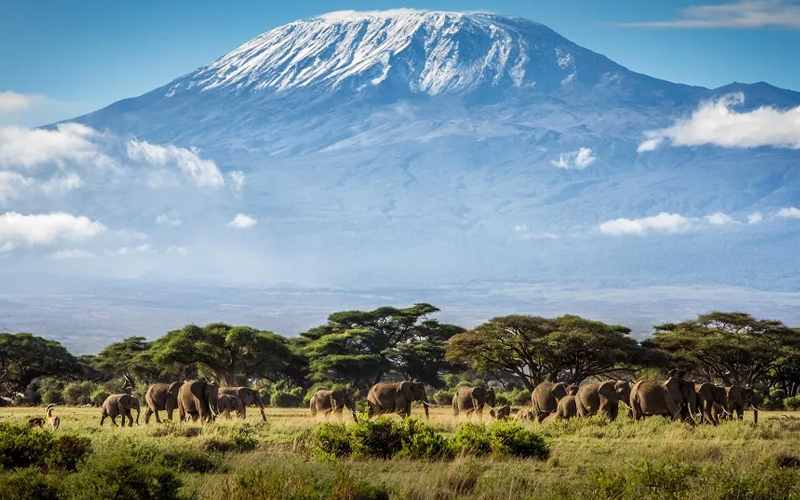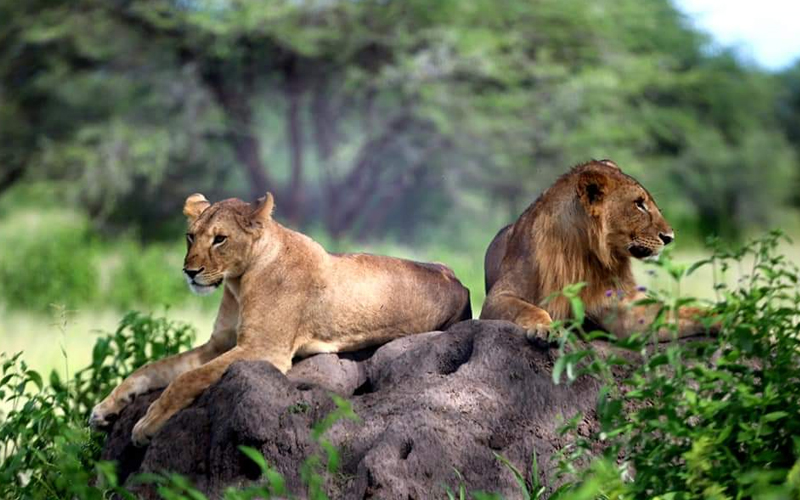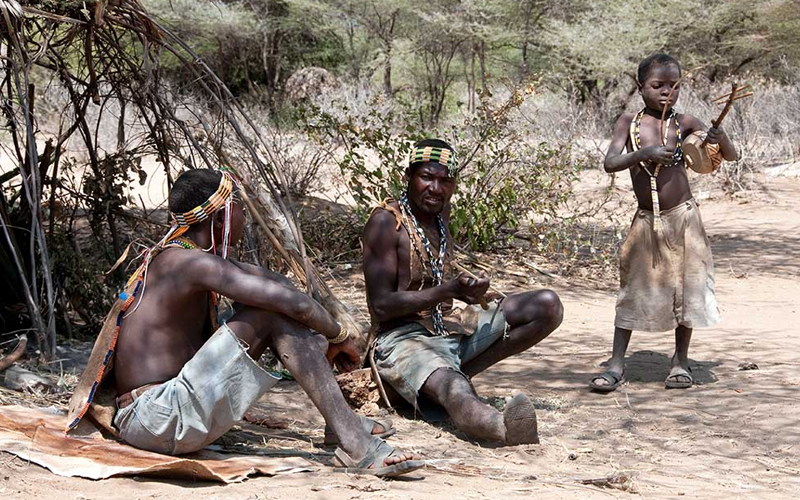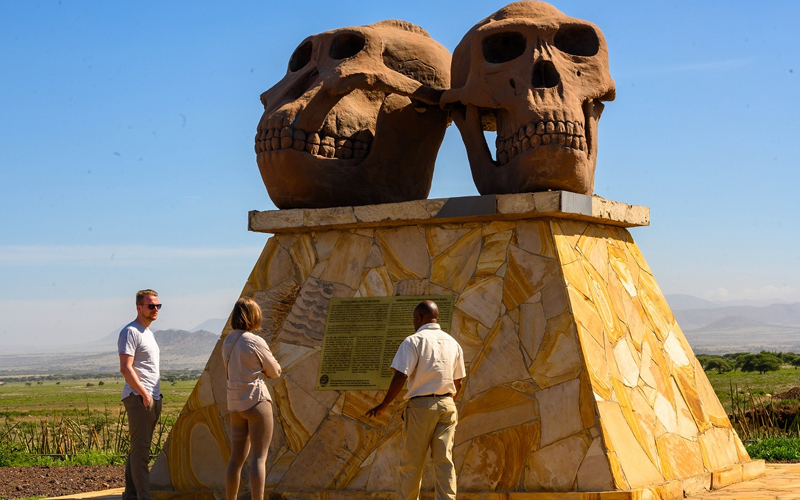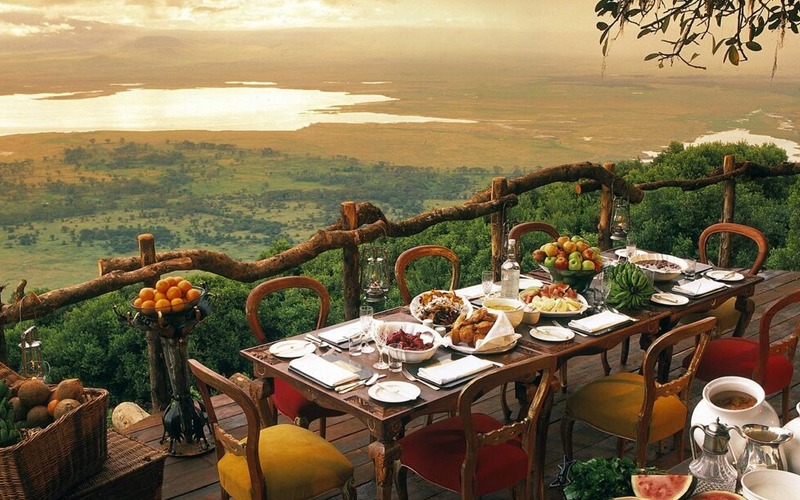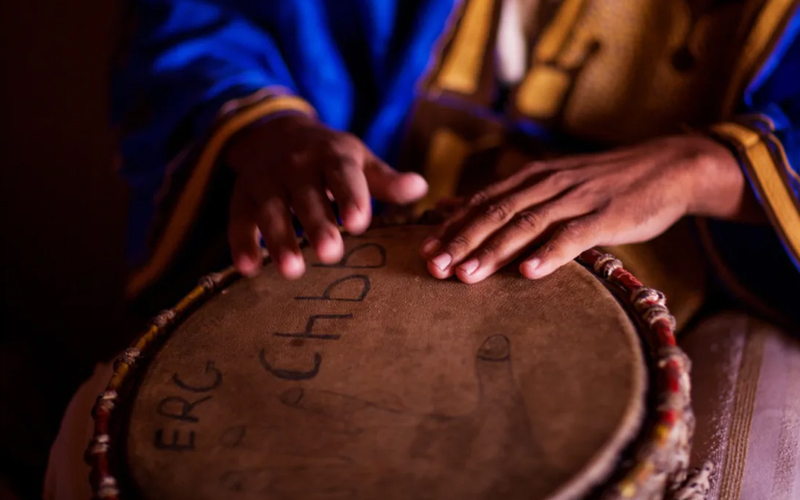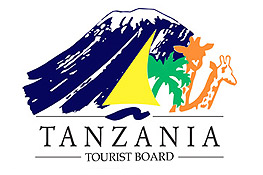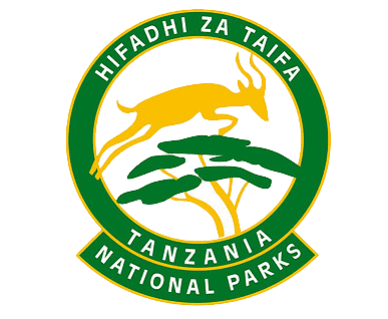Have you ever dreamed of wandering through vast savannas, witnessing the grandeur of the Great Migration, or standing on the roof of Africa? If so, Tanzania should be at the top of your travel bucket list. This East African gem offers unparalleled wildlife experiences, stunning landscapes, rich cultural heritage, and idyllic beaches. Let’s dive into everything you need to know to maximize your Tanzanian adventure.
Getting to Tanzania
- Major Airports: Tanzania is well-connected internationally through several major airports. The main gateways are Julius Nyerere International Airport (DAR) in Dar es Salaam and Kilimanjaro International Airport (JRO) near Arusha. These airports are serviced by numerous international airlines, making it easy to find flights from various parts of the world.
- Visa Requirements: Most travelers to Tanzania will need a visa, which can be obtained upon arrival or online through the Tanzania eVisa system. It’s advisable to check the latest visa requirements from the Tanzanian embassy or consulate in your country before your trip.
- Best Time to Visit: The best time to visit Tanzania largely depends on what you want to experience. The dry season from June to October is ideal for wildlife viewing, especially the Great Migration. If you plan to climb Mount Kilimanjaro, January to March and June to October are the best months. Zanzibar’s beaches are perfect year-round, but the best weather is from June to October and December to February.
Top Destinations in Tanzania
- Serengeti National Park: Home to the world-renowned Great Migration, the Serengeti is a must-visit for any wildlife enthusiast. The vast plains teem with wildlife, including lions, elephants, giraffes, and countless other species. A safari here offers the quintessential African wildlife experience.
- Mount Kilimanjaro: Standing at 5,895 meters, Mount Kilimanjaro is Africa’s highest peak. Climbing this majestic mountain is a once-in-a-lifetime experience, offering breathtaking views and a profound sense of accomplishment. There are several routes to choose from, catering to different fitness levels and preferences.
- Zanzibar: Zanzibar, an archipelago off the coast of Tanzania, is famous for its pristine beaches, crystal-clear waters, and rich history. Stone Town, the historical heart of Zanzibar, is a UNESCO World Heritage site, offering a blend of Swahili and Islamic influences. Whether you’re interested in relaxing on the beach or exploring cultural sites, Zanzibar has something for everyone.
- Ngorongoro Crater: Often called the “Eighth Wonder of the World,” the Ngorongoro Crater is a breathtaking natural wonder. This massive volcanic caldera is home to diverse wildlife, including the Big Five. The lush landscapes and abundant wildlife make it a prime destination for safari enthusiasts.
- Tarangire National Park: Less crowded than the Serengeti and Ngorongoro, Tarangire National Park offers a more intimate safari experience. It’s known for its large elephant herds and ancient baobab trees. During the dry season, the Tarangire River attracts many animals, providing excellent wildlife viewing opportunities.
Wildlife and Safaris
- The Big Five: Tanzania is one of the best places in the world to see the Big Five: lions, elephants, leopards, buffalo, and rhinos. These iconic animals can be spotted in several national parks, with the Serengeti and Ngorongoro Crater being top choices.
- Types of Safaris: From traditional game drives to walking safaris and hot air balloon rides, there are various ways to experience Tanzania’s incredible wildlife. Each type of safari offers a unique perspective and unforgettable memories.
- Best Safari Operators: Choosing the right safari operator can make a big difference in your experience. Look for operators with excellent reviews, knowledgeable guides, and a commitment to sustainable tourism. Some reputable operators include &Beyond, Thomson Safaris, and Nomad Tanzania.
Cultural Experiences
- Maasai Tribe: The Maasai people are one of Tanzania’s most well-known ethnic groups, famous for their distinctive customs and dress. Visiting a Maasai village offers a fascinating insight into their traditional way of life, including their practices, ceremonies, and daily routines.
- Swahili Culture: Swahili culture is deeply ingrained in the coastal regions of Tanzania, particularly in Zanzibar. This rich cultural heritage is a blend of African, Arab, and Persian influences, evident in the local architecture, cuisine, and language.
- Traditional Music and Dance: Music and dance play a vital role in Tanzanian culture. Traditional performances, often accompanied by drums and other local instruments, can be seen at cultural festivals and events throughout the country. Participating in these festivities is a great way to immerse yourself in the local culture.
Outdoor Adventures
- Hiking Mount Kilimanjaro: For adventure seekers, hiking Mount Kilimanjaro is a must. The climb is challenging but achievable for those in good physical condition. The journey takes you through diverse ecosystems, from lush rainforests to alpine deserts, culminating in stunning views from the summit.
- Scuba Diving and Snorkeling in Zanzibar: Zanzibar’s clear, warm waters are perfect for scuba diving and snorkeling. The vibrant coral reefs are home to a variety of marine life, including colorful fish, turtles, and even dolphins. Popular dive sites include Mnemba Atoll and Mafia Island.
- Hot Air Balloon Rides in the Serengeti: For a unique perspective on the Serengeti’s wildlife and landscapes, consider taking a hot air balloon ride. Floating above the plains at dawn, you can see herds of animals moving below, with the stunning sunrise providing a magical backdrop.
Historical Sites
- Stone Town: Stone Town, the historic center of Zanzibar City, is a UNESCO World Heritage site known for its winding alleys, bustling bazaars, and beautiful architecture. Key sites include the Sultan’s Palace, the Old Fort, and the House of Wonders.
- Olduvai Gorge: Often referred to as the “Cradle of Mankind,” Olduvai Gorge is one of the most important paleoanthropological sites in the world. Excavations here have unearthed some of the earliest evidence of human ancestors, making it a fascinating destination for history buffs.
- Bagamoyo: Once a major trading port, Bagamoyo is rich in history and culture. The town’s historical sites include the Kaole Ruins, the Old Fort, and the German Boma. Visiting Bagamoyo offers a glimpse into Tanzania’s colonial past and Swahili heritage.
Local Cuisine
- Popular Dishes: Tanzanian cuisine is a flavorful blend of African, Arab, and Indian influences. Popular dishes include Ugali (a maize porridge), Nyama Choma (grilled meat), and Zanzibar’s famous seafood. Don’t miss trying a Zanzibar pizza or a cup of spiced tea.
- Best Places to Eat: From street food stalls to fine dining restaurants, Tanzania offers a range of dining options. In Dar es Salaam, The Waterfront and Addis in Dar are popular choices. In Zanzibar, head to Emerson on Hurumzi or Lukmaan for an authentic culinary experience.
- Food Markets: Exploring local markets is a great way to sample Tanzanian cuisine. Dar es Salaam’s Kariakoo Market and Zanzibar’s Darajani Market are bustling hubs where you can find fresh produce, spices, and local delicacies.
Accommodation Options
- Luxury Lodges: For those seeking luxury, Tanzania has several high-end lodges and camps. Singita Grumeti and Ngorongoro Crater Lodge offer opulent accommodations with stunning views and top-notch service.
- Budget Hotels: Travelers on a budget will find plenty of affordable options. Hostels, guesthouses, and budget hotels are available in major cities and tourist areas. Some popular choices include the Tanzanite Executive Suites in Dar es Salaam and Safari Lodge in Arusha.
- Unique Stays: For a unique experience, consider staying in a treehouse or a tented camp. The Highlands in Ngorongoro offers dome-shaped tents with panoramic views, while the Treehouse Lodge in Tarangire provides an immersive nature experience.
Travel Tips
- Health and Safety: It’s important to take health precautions when traveling to Tanzania. Malaria is a risk in many areas, so be sure to take antimalarial medication and use mosquito repellent. It’s also recommended to get vaccinations for yellow fever, hepatitis A, and typhoid.
- Currency and Banking: The Tanzanian Shilling (TZS) is the local currency. ATMs are available in major cities, but it’s a good idea to carry cash for rural areas. Credit cards are accepted in many hotels and restaurants, but not everywhere.
- Language and Communication: Swahili and English are the official languages of Tanzania. While English is widely spoken in tourist areas, learning a few basic Swahili phrases can enhance your experience and help you connect with locals.
Sustainable Tourism
- Eco-friendly Practices: Tanzania is committed to sustainable tourism, with many lodges and tour operators adopting eco-friendly practices. These include using solar power, reducing plastic waste, and supporting conservation efforts.
- Community-based Tourism: Community-based tourism initiatives allow travelers to experience local culture while supporting the community. Programs like the Cultural Tourism Program in Mto wa Mbu offer guided tours that benefit local residents.
Shopping and Souvenirs
- Local Markets: Exploring local markets is a must for any visitor. Markets like Mwenge Carvers Market in Dar es Salaam and Zanzibar’s Forodhani Gardens offer a variety of handmade crafts, jewelry, and textiles.
- Handicrafts: Tanzanian artisans are known for their skill in creating beautiful handicrafts. Look for items like Maasai beadwork, Tinga Tinga paintings, and handwoven baskets.
- Best Souvenirs to Buy: Popular souvenirs include Tanzanite jewelry, carved wooden masks, and Kanga or Kitenge fabrics. These items make great gifts and mementos for your trip.
Transportation Within Tanzania
- Domestic Flights: Domestic flights are a convenient way to travel between major destinations in Tanzania. Airlines like Precision Air and Coastal Aviation offer regular flights to key tourist areas.
- Public Transport: Buses and Dala-dalas (minibusses) are the main forms of public transport. While they are cheap and widely available, they can be crowded and less comfortable. For shorter distances, taxis and motorcycle taxis (bodabodas) are options.
- Car Rentals: Renting a car gives you the freedom to explore at your own pace. Several international and local car rental agencies operate in Tanzania. Keep in mind that driving can be challenging due to road conditions and local driving habits.
Festivals and Events
- Sauti za Busara: Held annually in Zanzibar, Sauti za Busara is one of East Africa’s biggest music festivals. It features a diverse lineup of artists from across the continent, celebrating African music and culture.
- Zanzibar International Film Festival: This prestigious festival showcases films from Africa and the diaspora. It includes screenings, workshops, and cultural events, attracting filmmakers and film enthusiasts from around the world.
- Serengeti Cultural Festival: The Serengeti Cultural Festival, held in Mugumu, celebrates the region’s cultural heritage. It features traditional music, dance, art, and food, providing an immersive cultural experience.
Tanzania is a land of unparalleled beauty and diversity, offering something for every traveler. Whether you’re seeking thrilling wildlife encounters, cultural immersion, or simply a relaxing beach getaway, Tanzania delivers. Pack your bags, and get ready for the adventure of a lifetime in this magnificent country.
FAQs
What is the best time to visit Tanzania?
The best time to visit Tanzania depends on your interests. For wildlife viewing, the dry season from June to October is ideal. For climbing Mount Kilimanjaro, consider January to March or June to October. Zanzibar’s beaches are best enjoyed from June to October and December to February.
Do I need a visa to visit Tanzania?
Yes, most travelers need a visa to enter Tanzania. Upon arrival, you can obtain a visa or apply online through the Tanzania eVisa system. Be sure to check the latest requirements from your country’s Tanzanian embassy or consulate.
Is Tanzania safe for tourists?
Tanzania is generally safe for tourists, but it’s important to take common-sense precautions. Be aware of your surroundings, avoid displaying valuables, and follow local advice. In wildlife areas, always follow the guidance of your safari guides.
What vaccinations are required for Tanzania?
Recommended vaccinations for Tanzania include yellow fever, hepatitis A, typhoid, and routine vaccinations such as MMR and DPT. It’s also advisable to take antimalarial medication. Consult with a travel health specialist before your trip.
What are the must-see places in Tanzania?
Must-see places in Tanzania include Serengeti National Park, Mount Kilimanjaro, Zanzibar, Ngorongoro Crater, and Tarangire National Park. Each destination offers unique experiences and breathtaking landscapes.
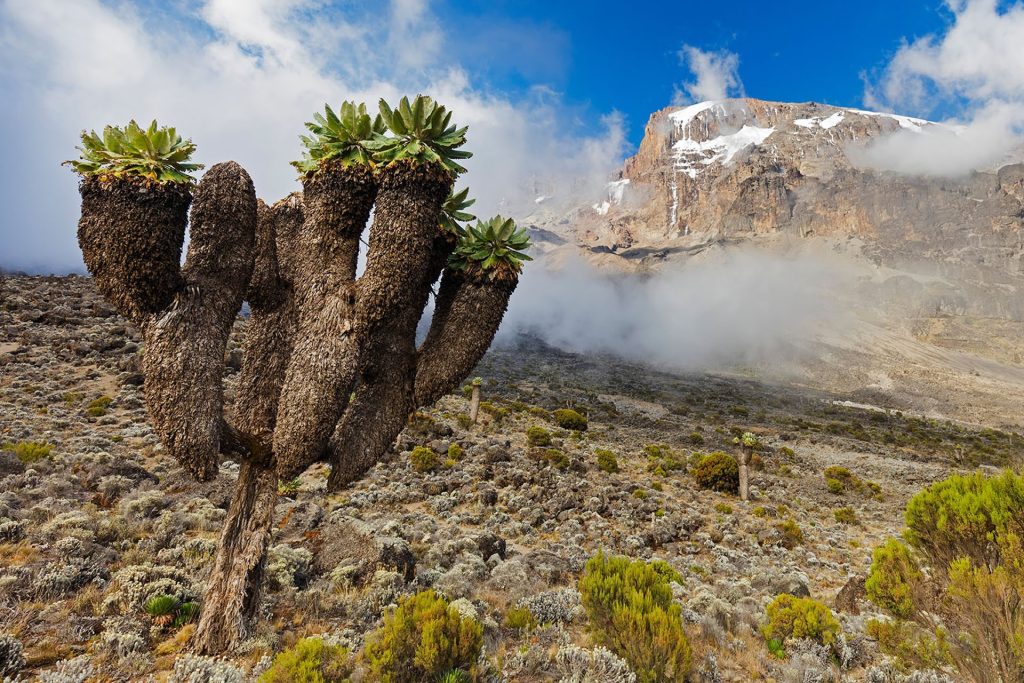
Kilimanjaro Climb
Book Hiking tours to Mount Kilimanjaro, The Roof of Africa, Best Prices Guarantee!
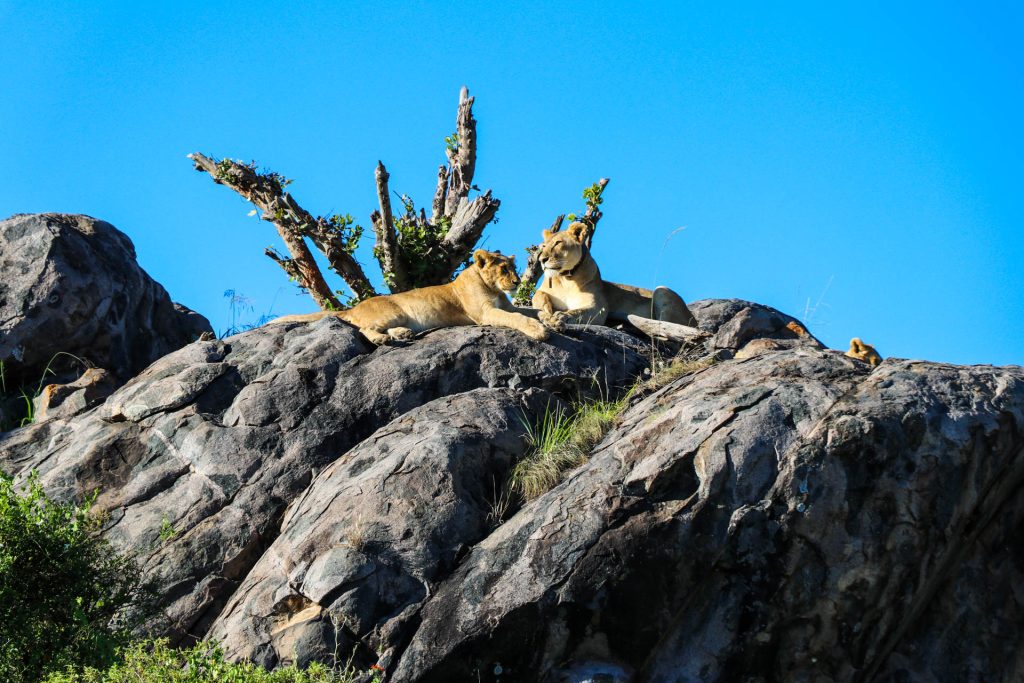
Tanzania Safari Vacations
Explore our Unforgettable Tanzania Budget, Mid-Range & Luxury Wildlife Safari.
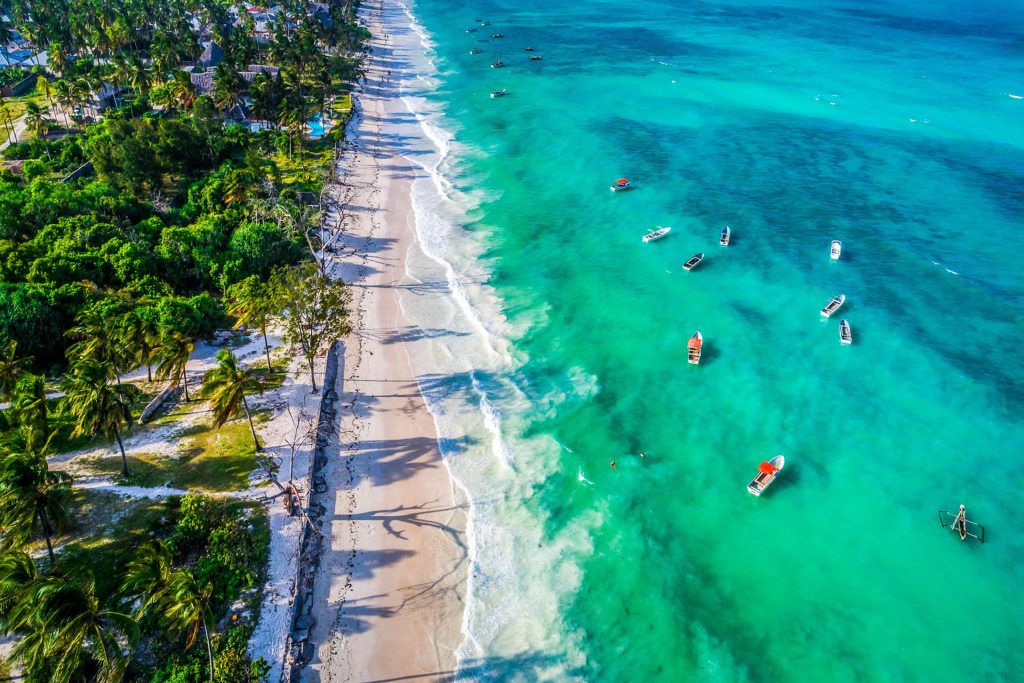
Beach Excursions
Visit Zanzibar Island and Coastal Tanzania for beach tours before and after a climb or safari.
ABOUT BOKER ADVENTURE…
Boker Adventure is a Tanzania Tours company located in Moshi town along the slope of Mount Kilimanjaro committed to offering local experiences such as Mount Kilimanjaro climbing experiences, Tanzania Wildlife Safari Experiences, Tanzania cultural tourism, bike tours, honeymoon, Air Ticketing and beach holidays. At Boker Adventures, we offer you a unique and comprehensive selection of Tanzania Private tours that are tailor made to suit your schedule and budget.
Please give us an opportunity to organize your African dream holiday!.

